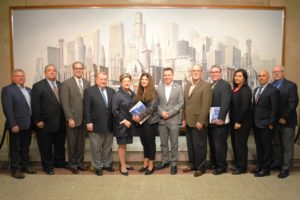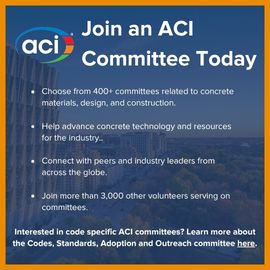
Chicago City Council approves major building code modernization
![]() On April 10, 2019, the Chicago City Council voted to adopt a major update to the Chicago Building Code that will better align the city’s construction requirements with up-to-date model codes and national standards. Chicago joins other major jurisdictions in the U.S. in adopting the 2018 International Building Code.
On April 10, 2019, the Chicago City Council voted to adopt a major update to the Chicago Building Code that will better align the city’s construction requirements with up-to-date model codes and national standards. Chicago joins other major jurisdictions in the U.S. in adopting the 2018 International Building Code.

The new code represents the first comprehensive revisions to the building code in 70 years and will make construction in Chicago more affordable by expanding options to design and build with a wider range of materials and technologies. Though there have been several modifications to the Chicago Building Code over the years, the last comprehensive overhaul to the code was adopted in 1949. The code update approved by City Council moves Chicago closer to national standards in several significant areas, including building planning, fire and life safety, enclosures and materials, structural, small residential, and rehabilitation of existing buildings.
The code modernization ordinance is based on the latest editions of the International Building Code for new construction and the International Existing Building Code for rehab of existing buildings. A significant part of revising the Chicago Building Code involved adopting the common terminology and format used in other major U.S. jurisdictions. This will make it easier for all architects, designers and builders to understand Chicago’s requirements. In addition, the code will be easier to keep up-to-date going forward as national standards are changed or refined.
“This week is an important milestone for the city of Chicago as they work to modernize their building code based on the International Codes, the most widely used and adopted set of building safety codes in the world,” said International Code Council Senior Vice President of Government Relations Sara Yerkes. “This modernization advances building safety in the city, contributes to creating consistent codes across the state, and will help Chicago attract more business. We’re proud to support the city of Chicago as it moves forward with this historic update.”
Related:
Chicago modernizes building codes
Chicago takes next step to modernize its building code using the I-Codes
In addition to further streamlining the permit process, the new code will improve, enhance and spur on new building projects of all sizes throughout Chicago by adding more flexibility and options for construction materials. This can bring down the cost of new construction and building rehabs in Chicago including single-family homes, affordable housing units, and two- and three-flats. In being more closely aligned with model codes and national standards, the new code will speak the same language as building codes used virtually everywhere else in the country and promote greater use of green technologies and best practices for sustainable building design and construction.
More specifically, the rewritten code will:
- Adopt the International Building Code’s widely used terminology and classification systems for building occupancies and construction types, making it easier for architects and builders to follow and meet Chicago’s code requirements.
- Adopt specific, up-to-date requirements for a wide range of building materials such as walls, roofs and other construction that will provide guidelines and standards that are lacking in Chicago’s existing code.
- Enhance safety by requiring sprinkler systems in new construction including hotels, most apartment buildings with four or more units, places of assembly with 300-plus occupants and new office buildings greater than 70 feet tall.
- Encourage new development by allowing buildings with sprinkler systems to have greater height, number of stories and floor area per construction type.
- Allow for more cost-effective construction of single-family homes by adopting risk-based, structural design requirements so that a two-story, single-family home will not need to meet the same structural requirements as a 15-story hospital.
- Create greater opportunities for conversion of existing basements and attics as livable space without costly structural alterations by reducing minimum ceiling heights, as well as providing more options to meet light and ventilation requirements.
- Encourage preservation of Chicago’s existing building stock, including historic buildings, by providing additional flexibility and options for rehab work. This will bring down the cost of projects like the adaptive re-use of schools, retail buildings and vacant buildings throughout the city.
- Promote energy efficiency and sustainability by making it easier to construct green buildings; ones that are durable, functional and energy efficient.
- Enhance public safety in the event of a natural disaster by adopting seismic design requirements for critical facilities such as hospitals and fire stations and some taller buildings.
The proposed changes will be phased in gradually, beginning June 1 and completely replacing the current building code by Aug. 1, 2020. During the implementation period, the Chicago Department of Buildings will continue to work with a wide range of stakeholders to ensure a smooth transition.








